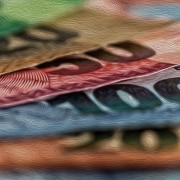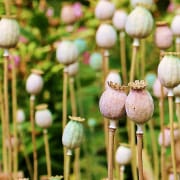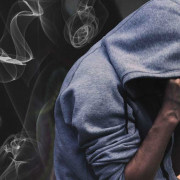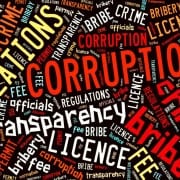|
Getting your Trinity Audio player ready...
|
By Thato Mahlangu
The latest Organised Crime Index by anti-organised crime organisation Enact Africa shows how crime has infiltrated and infested South Africa.
On the index for criminality, South Africa was ranked at number 10 out of 54 African countries, with high scores for both criminal markets and criminal actors. The country scored 6.6 while Nigeria topped the list with a score of 7.70.
The republic of Congo scored 7.29, while Central African Republic scored 6.86. Somalia followed in fourth place with a score of 6.40, South Sudan sits at 6.40, followed by Sudan at 6.38, Libya at 6.26, Côte D’ivoire at 6.23, and Mali on 6.20.
“The harms caused by organised crime are widespread and profound,” states the report. “Yet because it is almost always obscured in the ‘underworld’, hidden in the shadows of remote borderlands, concealed in secrecy jurisdictions or felt most keenly by underserved communities, organised crime is a threat too easily overlooked.”
Enact Africa describes the index as an innovative tool designed to measure levels of organised crime in African countries and assess their resilience to organised-criminal activity. It comprises two composite metrics; the index ranks countries according to their levels of criminality on a score from 1 to 10 (lowest to highest crime levels) and according to resilience to organised crime from 1 to 10 (lowest to highest resilience levels).
Criminal markets exploit people or commodities
The criminal markets indicator measures the kind of criminal acts which are conducted on a large scale in both the private and public sectors. This section includes 10 criminal markets which exploit people or commodities – they are human trafficking, fauna crimes, non-renewable-resource crimes, arms trafficking, cannabis trade, human smuggling, flora crimes, synthetic drugs trade, heroin trade, and cocaine trade.
Criminal actors, meanwhile, are the people or networks behind these acts who operate within a country and transnationally, according to the index.
The index describes the inter-relationship between criminal markets and criminal actor groups, which it says warrants examination, thus: “There is a strong correlation between criminal markets and criminal actors, and 74% of African countries have a higher score for criminal actors than for criminal markets, which suggests that more systematic research and analysis should be targeted at understanding the actors and networks enabling criminality in Africa.”
According to the index, South Africa ranks 10th in Africa for criminality, while simultaneously performing well with regard to resilience (9th on the continent).
The criminality score for South Africa reflects the country’s diverse array of criminal markets, including well-established drugs markets for heroin and synthetic drugs, in addition to environmental-crime markets for fauna and non-renewable resources. South Africa also has embedded and developed organised-crime groups, including mafia-style gang structures, particularly in the Western Cape.
The high cost of drug use
The 2013-2017 social development department’s National Drug Master Plan figures provided by the South African Revenue Service (SARS) indicated that the known direct cost of illicit drug use was about R101 000-million in 2005.
But Africa Check, who interviewed the then SARS spokesperson Sandile Memela, found that there was no tangible reference or source to back up the statement made by the department.
“The spokesman for the revenue service said the figures they keep only relate to the trade in narcotics. This is based on actual narcotic confiscations by the police and their estimate of its street value. Memela told us that according to their record, the police confiscated narcotics to the value R265-million in 697 busts across the country in 2015,” according to a statement on their website.
Similar research by Enact, published in April 2019, found that the industry has a devastating impact which has been largely ignored or misunderstood by police and government.
“[The] research has also found widespread and problematic use of heroin in South Africa’s small towns, big cities, and rural areas.”
Enact said the illicit trade in the opioid drug may have an annual cash turnover of billions of rands, and is a rapidly thriving industry. Opioid drugs include heroin, synthetic opioids such as fentanyl, and pain relievers available legally by prescription, such as oxycodone (OxyContin®), hydrocodone (Vicodin®), codeine, morphine, and many others.
Other illegal activities have an impact
The index also looked at how illegal mining and the illegal trade of precious metals like gold can have an impact on the environment.
“Experts had the view that illicit mining and the illicit trade in gold (non-renewable-resource crimes), as well as poaching of rhino and abalone (fauna crimes), are areas of major concern that contributes to high scores for the environmental markets.”
South Africa scores 7 for arms trafficking, “largely because of the significant number of cases of armed violence that takes place in South Africa.” The continental average for this indicator was 5.24 out of 10.
The index found that South Africa also scores poorly for all categories of criminal actors (mafia-style groups, criminal networks, state-embedded actors, and foreign criminal actors), all of which experts deem to be established and to exert a significant negative influence on society.
High criminality, but high resilience
“In terms of resilience, South Africa scores well, ranking 9th in Africa, with nine of the 12 indicators scoring 6 or above.”
The country scored 5.58 in this section, ranking between Nigeria with 5.67 and Ghana with 5.46. According to the index, South Africa’s high resilience score reflects the country’s strong legal and institutional frameworks that are able to effectively respond to the organised-crime threat, despite their erosion in recent years. There is also a potential capacity for the country to respond to organised crime.
The indicators are: political leadership and governance, government transparency and accountability, international co-operation, national policies and laws, judicial system and detention, law enforcement, territorial integrity, anti-money laundering, economic regulatory, environment victim and witness support, prevention, and non-state actors.
South Africa’s lower scores were for international co-operation, prevention, and victim and witness support.
The standout feature of South Africa’s resilience to organised crime, according to the index, is the strength of the country’s civil society and non-state actors, which is a key factor in the country’s commendable resilience score.
For more on how South Africa is ranked, please read more here:








